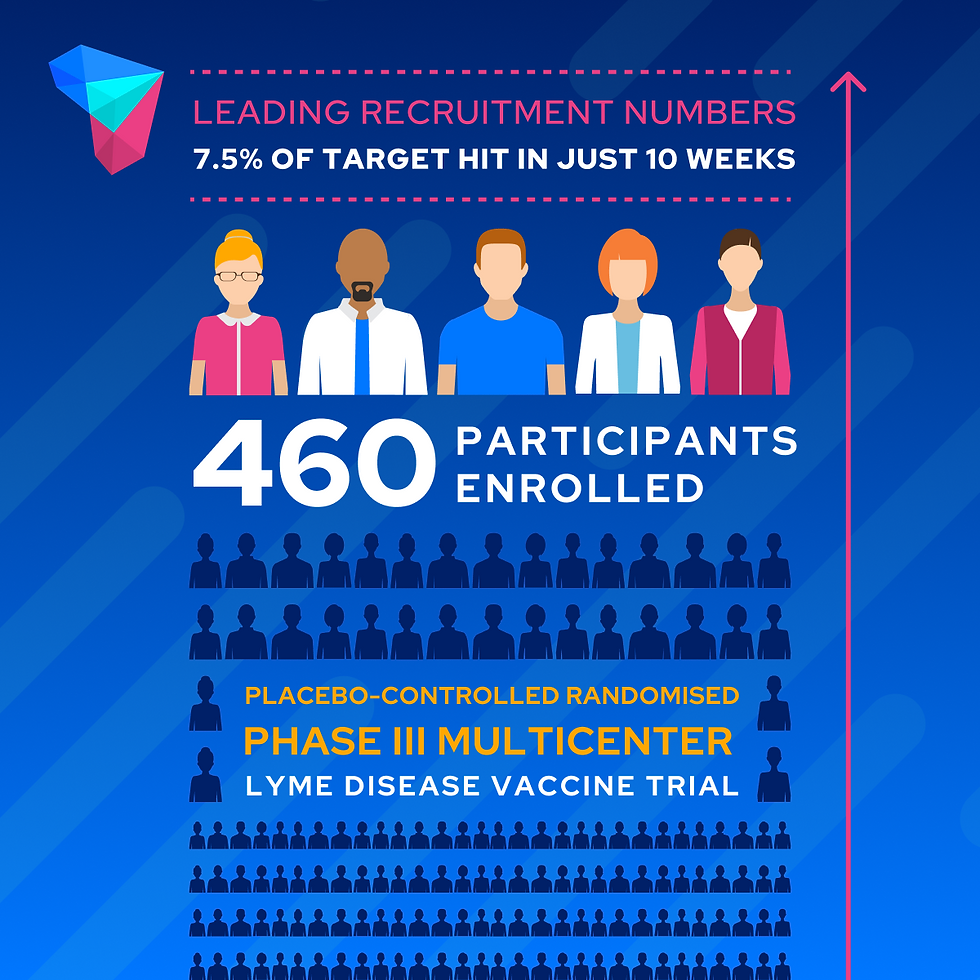5 Reasons Why Patient-Centric Clinical Trial Design Can Benefit CROs and Sponsors
- FutureMeds

- Dec 13, 2022
- 3 min read
Updated: Jan 24, 2023
We all know that a more engaged patient population can minimise risk to study timelines and improve the trial’s overall quality. So the question is, how can we engage patient populations and encourage them to participate in clinical trials that may not seem relevant to them at first glance?

Recent research shows that one of the hidden recruitment challenges is insufficiently compelling therapeutic areas or research questions. In other words, patients can perceive trials that ignore patient perspectives as irrelevant or burdensome. Low patient engagement can lead to low recruitment and retention rates and cause significant delays.
At FutureMeds, we aim to bring together, engage and empower all stakeholders to support our clients' trial design process and increase their chances of designing trials that have the best chance to engage patient populations and mitigate risks.
Recruitment and retention statistics show and underpin that by taking a patient-centric approach and incorporating the Voice of Patients in the trial design process, clinical trials can be designed to minimise patient burden and discomfort and maximise their engagement and participation in trials.
5 reasons why incorporating the voice of patients in trial design benefits CROs and Sponsors
Improved patient recruitment and retention: By designing clinical trials with the needs and preferences of patients in mind, CROs and Sponsors can make the trial experience more appealing to potential participants. It can lead to improved recruitment and retention rates, reducing the time and cost of conducting the trial.
Enhanced data quality: By incorporating the voice of patients in the trial’s design, CROs and sponsors can improve the data quality through higher engagement and stronger retention, reducing the number of missing or incomplete data points and improving the trial results’ reliability and validity.
Better patient outcomes: By focusing on patient-centred care, CROs and Sponsors can help improve trial participants’ overall health and well-being. It can lead to better patient outcomes, ultimately improving the efficacy of the tested treatment.
Increased public trust and engagement: By demonstrating a commitment to patient-centred care, CROs and Sponsors can improve the reputation of clinical trials and build trust with the public. It can increase engagement with clinical trials, improve participants’ availability and help advance medical research.
Greater commercial success: By improving the quality and reliability of trial results, CROs and Sponsors can increase the likelihood of commercial success for the treatments being tested. It can generate revenue and support future research and development efforts.
Overall, the patient-centric clinical trial design places the needs and preferences of patients at the forefront of the trial design process. As a result, it can help ensure that the trial is relevant and meaningful to patients and addresses the issues and concerns that are most important to them.
By ensuring that the trial is tailored to their needs and preferences, patients can feel more empowered and involved in their own healthcare and be more likely to adhere to the trial protocol and complete the trial.
At FutureMeds, we work closely with Sponsors, CROs, the medical community and other partners to boost patient engagement. To ease pressures and minimise the risk to study timelines, we recommend the following:
✔ Incorporate the therapeutic indication, epidemiology, geographical standard-of-care analysis, the patient's voice, the site's voice, and the site’s understanding of the study-specific patient journey in the trial design. The factors influencing recruitment and retention can vary between countries based on cultural norms, perception and awareness of clinical trials, available healthcare options, therapeutic indications, and geographic considerations.
✔ Shift focus from trial outcomes to patient experience and satisfaction. It will generate empirical evidence that shows whether patient-centric initiatives are meeting the primary intent of patient engagement. From a Sponsor and CRO perspective, tracking patient satisfaction can serve as an early indicator that can be used to help predict relevant study-level operational outcomes.
About FutureMeds
FutureMeds is a fast-growing independent Dedicated Research Site Network supporting pharmaceutical companies, Sponsors and CROs and contributing to research to find effective treatments and medications for all patients who need them.
FutureMeds’ Dedicated Research Site teams strive to accelerate study timelines, streamline processes, lower costs and improve data quality to help accelerate patient access to new treatments.
Through acquisitions and a strategic focus on patient experience, FutureMeds has developed qualified patient pools across Europe that enables faster patient enrollment and strong retention and help generate more accurate results.
Follow us on LinkedIn
Follow FutureMeds on LinkedIn and join a growing group of engaged, passionate healthcare and pharmaceutical professionals who are on a mission to accelerate the drug development process and achieve regulatory approval faster so patients can safely access the very latest treatments as soon as possible.



Comments